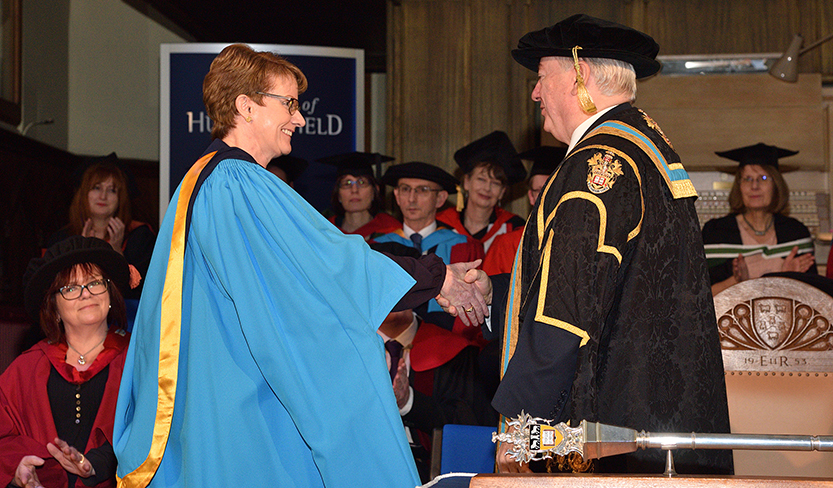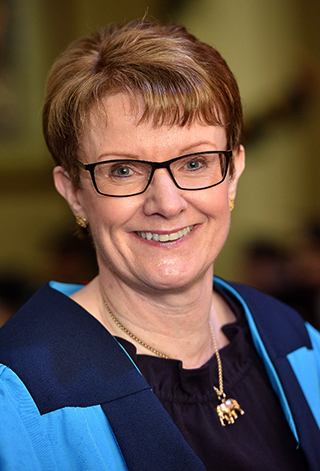Special honour for NS&I former CEO

Fri, 18 Nov 2016 12:14:00 GMT
Jane Platt CBE received an Honorary Doctorate of the University for services to finance and savings
 NATIONAL Savings and Investments now manages £135 billion for 25 million customers. But its origins lie in a far-sighted innovation of 1850 at the institution that was the forerunner of today’s University of Huddersfield. Now, the woman who ran NS&I for ten years and fostered its enormous growth has visited to the University to receive a special honour.
NATIONAL Savings and Investments now manages £135 billion for 25 million customers. But its origins lie in a far-sighted innovation of 1850 at the institution that was the forerunner of today’s University of Huddersfield. Now, the woman who ran NS&I for ten years and fostered its enormous growth has visited to the University to receive a special honour.
When Jane Platt CBE was conferred with an Honorary Doctorate, she acknowledged the University’s historical significance as the place where a new savings culture was fostered. She also hailed the University as “a really special place” that prepared people for the real world, with a “great tradition of its people making a real difference”.
Ms Platt, who had a highly successful banking career before taking the helm of NS&I in 2006, was speaking after her doctorate was conferred by Vice-Chancellor Professor Bob Cryan at one of the sequence of awards ceremonies taking place at the University of Huddersfield, during a week that saw almost 1,500 students receive their degrees.
The year 1841 saw the foundation of Huddersfield Mechanic’s Institution – which evolved into the modern University – and in 1850 it was the base of a Preliminary Savings Bank set up by local banking pioneer Charles W. Sikes, later knighted. It was the model for the Post Office Savings Bank, founded in 1861, which in turn became National Savings and Investments.
Ms Platt reflected on the fact that Sikes’s savings bank started as a local institution open on Mondays and Saturdays had evolved 150 years later into an NS&I that had £135 billion in management and was open round the clock, 365 days a year.
“But most importantly, the savings bank started a real culture of popular savings – an important social issue of the day.”
The bank was not the only social issue of which Huddersfield took a lead, continued Ms Platt.
“This was one of the very first places in the UK to seek to increase the facilities for the mental improvement of young females by setting up a Huddersfield Female Educational Institute [in 1846]. This was such an important step on the long road to equality and diversity, which is so apparent in the student body and the graduate body here at Huddersfield,” she said.
An oration for Jane Platt was delivered by Caroline Elliott, who is Professor of Industrial Economics in the University’s Department of Accountancy, Finance and Economics. She outlined the course of Ms Platt’s banking career, including senior roles at Barclays, before her arrival at NS&I in 2006.
Professor Elliot told how Ms Platt had steered NS&I through the financial crisis, doubling the amount of funds that it managed and also making major innovations such as an online provision and pensioner bonds.
“Some in the banking and building society sector suggested that NS&I was stealing their market share,” said Professor Elliott. “Nevertheless, a lot of people would cheer as Jane Platt led NS&I as it challenged the dominant position of some of the current market leaders in the personal savings part of the UK banking industry. These market leaders have been forced to reconsider some of the deals they offer individual savers and this can only be beneficial.”







